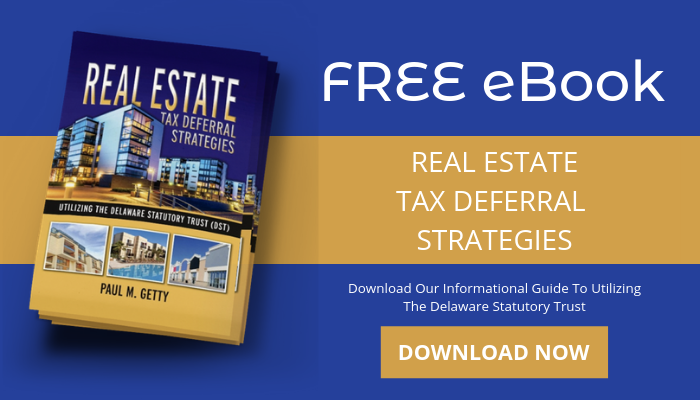In this blog post we will share techniques that our clients have utilized to add cash to an exchange and remove cash tax-free. Let’s take these topics in order.
Can You Add Cash to a 1031 Exchange?
Yes, you can always add cash into your 1031 Exchange. Recall the three basic rules that must be followed to achieve a full tax deferral:
- You must purchase replacement properties equal to or greater in value than the property you are selling
- You must reinvest all your net proceeds
- You must replace any debt in the property you are selling with the same amount or greater debt in the replacement properties you are acquiring, or// you can add cash from outside the exchange to reduce this debt requirement on a dollar-for-dollar basis
It is not uncommon for our clients to purchase 1031 exchange replacement properties that have a greater aggregate value than the property that they are selling. Why? They may have funds that are yielding less of a return than would be realized if those funds were to be invested in an income producing replacement property. Or they may simply want to buy a more valuable property because they believe it may be a more suitable choice for them.
Purchasing a property of greater value will also likely result in adding basis to that property which may increase the overall depreciation deduction that could applied against the income that may be received.
Some of our clients also may wish to lower the debt ratio in their replacement properties and can add cash from outside the exchange to accomplish this. This approach is most often taken when the debt ratio on a sold property is higher than the existing debt in properties with assumed debt such as in many DSTs, or in cases where an investor may be unable to qualify for a new loan that is equal to their old loan.
The good news is that the 1031 regulations do permit investors to add cash from outside of their exchange to accomplish desired objectives such as buying more valuable properties or reducing debt requirements.
Can I Take Cash Out of An Exchange?
Yes – many of our clients take some cash out of their exchange. In fact, we often encourage our clients to “take a little off the table” to enjoy some of the wealth that they have created in their appreciated real estate. As we all have often been told “You can’t it with you” - and taking some money out of an exchange to fund a bucket list trip or to purchase something that you may have always wanted is not a bad choice for many.
And yes, there are tax consequences to taking money out of any exchange that need to be considered, but many of our clients don’t mind paying some taxes to gain enjoyment in celebrating their success in real estate.
Can I Take Cash Out of An Exchange Tax-Free?
The short answer is “No” – but there is a technique used by some of our clients that can achieve a similar objective which I will discuss via this brief case study.
One of our clients was considering selling a business property that had a low debt ratio of about 20%. He wished to make repairs on another one of his investment properties with some of the funds from the sale but did not want to pay any taxes.
Instead of using exchange funds which would have been taxable, we suggested that he 1) approach his current lender to see if they would allow him to add more debt to his existing property and 2) seek the opinion of this tax advisor to verify that adding more debt prior to his planned sale would not jeopardize his 1031 exchange.
He received positive responses to both questions and subsequently was able to obtain cash in the form of loan proceeds from refinancing his property that he used to fund the needed repairs. His loan ratio increased to a manageable 40% and later he successfully sold his property and reinvested funds in a DST portfolio that allowed him to meet his debt requirements for a 100% tax deferral.
Funds received in the form of a loan are free of tax obligations. If needed, investors may therefore be able to obtain needed funds from their properties through refinancing it and not pay any taxes on the funds received. As a consequence, there will generally be added debt service costs until the property is sold – however the added costs will typically be much less than the cash received from the loan.
This technique called “cash-out financing” must be done with caution and with the full approval of a knowledgeable real estate tax advisor since the IRS may raise challenges if they believe that the intent of the financing done in anticipation of a 1031 exchange was to avoid payment of taxes.
In general, it is best to complete a cash-out financing well before doing a 1031 exchange and to document that the financing was done for independent business reasons and not to avoid payment of taxes.
For more information on real estate tax deferral strategies and to obtain a list of current 1031-eligible replacement properties, please contact us at 408-392-8822 or info@FirstGuardianGroup.com. You can also schedule a personal consultation with Paul Getty here.
Please feel free to download our FREE ebook to learn more about real estate tax deferral strategies!
Help Save 1031 Exchanges
*The Tax Cuts and Jobs Act of 2017 allows real estate investors to fully write-off the cost of select new and used equipment, furniture, fixtures, and most land improvements in the year when the investment was made rather than requiring that the improvements be depreciated over time. This can be a powerful tool for lowering taxable income. Please consult your tax advisor to learn how you may benefit.









Your Comments :